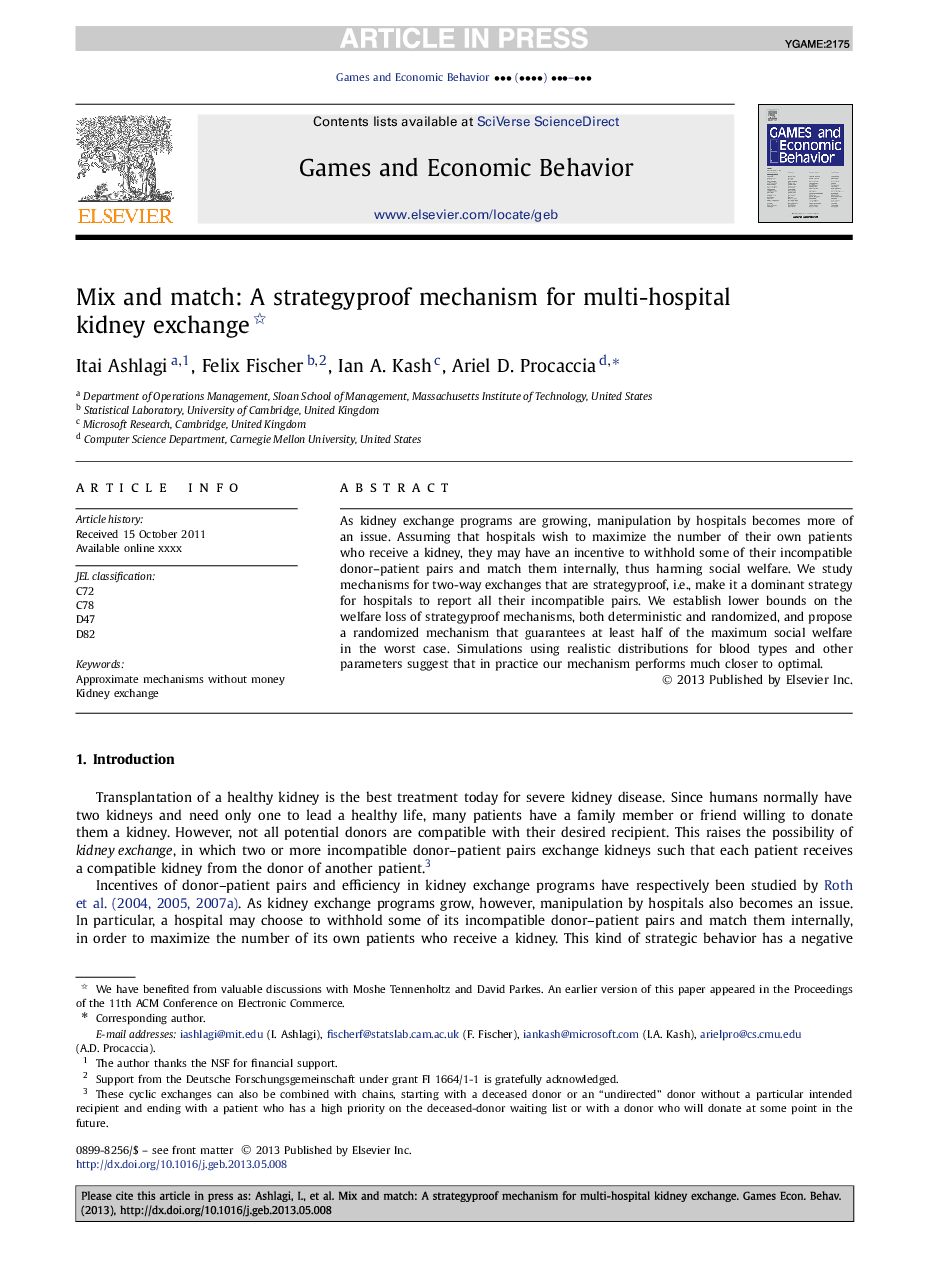| Article ID | Journal | Published Year | Pages | File Type |
|---|---|---|---|---|
| 5071669 | Games and Economic Behavior | 2015 | 13 Pages |
Abstract
As kidney exchange programs are growing, manipulation by hospitals becomes more of an issue. Assuming that hospitals wish to maximize the number of their own patients who receive a kidney, they may have an incentive to withhold some of their incompatible donor-patient pairs and match them internally, thus harming social welfare. We study mechanisms for two-way exchanges that are strategyproof, i.e., make it a dominant strategy for hospitals to report all their incompatible pairs. We establish lower bounds on the welfare loss of strategyproof mechanisms, both deterministic and randomized, and propose a randomized mechanism that guarantees at least half of the maximum social welfare in the worst case. Simulations using realistic distributions for blood types and other parameters suggest that in practice our mechanism performs much closer to optimal.
Keywords
Related Topics
Social Sciences and Humanities
Economics, Econometrics and Finance
Economics and Econometrics
Authors
Itai Ashlagi, Felix Fischer, Ian A. Kash, Ariel D. Procaccia,
